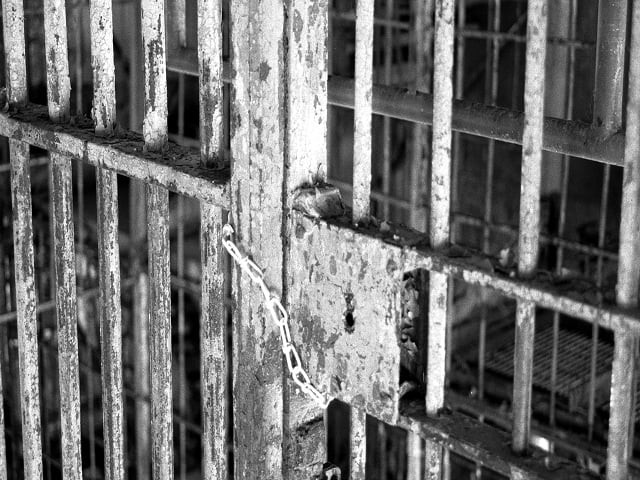Bonded workers living in camps barely liberated
Sixteen thousand freed bonded labourers living at hari (peasant) camps are still afflicted with misery.

Bonded workers living in camps barely liberated
Sixteen thousand freed bonded labourers living at hari (peasant) camps are still afflicted with misery because they lack basic facilities, including health, education, clean water and employment.
Labourers at the Sikandarabad, Baba Salahuddin and Himatabad camps and Kotri and Azadnagar camps in Hyderabad have murky stories to tell.
“We can’t return to our towns because we are afraid of those who kept us as serfs but at the camps, our limited skills cannot get us enough work to support our families,” regretted Punu Bheel, who is staying at Azadnagar Camp.
Only two of the four camps, Himatabad and Azadnagar, have a single-room school but lately, there has been no teacher at the Azadnagar camp.
Even though we hear of judicial action being taken to extricate bonded workers, it is difficult to help them start afresh. The problem remains even after the Pakistani government set up a Bonded Labour Fund, with an initial grant of Rs100 million. The fund is used to provide labourers new homes, employment opportunities, skill development programmes, health and education facilities.
Society for Protection of Rights of Children National Manager Kashif Bajeer explained that non-governmental organisations (NGOs) are doing their bit to liberate workers by providing legal aid but the “rehabilitation process is a mighty task”.
“On Monday, nearly 11 freed labourers were brought to the high court by the police. Nineteen of them were freed last week and 40 a week ago and all of them were helped by NGOs,” he said.
Kashif suggested that the government introduce a scheme similar to the one launched for landless female peasants. “The government distributed 25 acres to each landless female peasant and they should do something along these lines for freed workers,” he recommended.
He also suggested that vocational training centres be introduced at hari camps to develop skills for male and females. “The women of Tharparkar, who dominate the camps, are experts in traditional embroidery and needle work and their skills can be harnessed through training programmes,” he added.
Thousands of workers have been freed since the enactment of the Bonded Labour System (Abolition) Act in 1992, but their rehabilitation is as important an issue as their liberation.
Published in The Express Tribune, April 26th, 2011.



















COMMENTS
Comments are moderated and generally will be posted if they are on-topic and not abusive.
For more information, please see our Comments FAQ